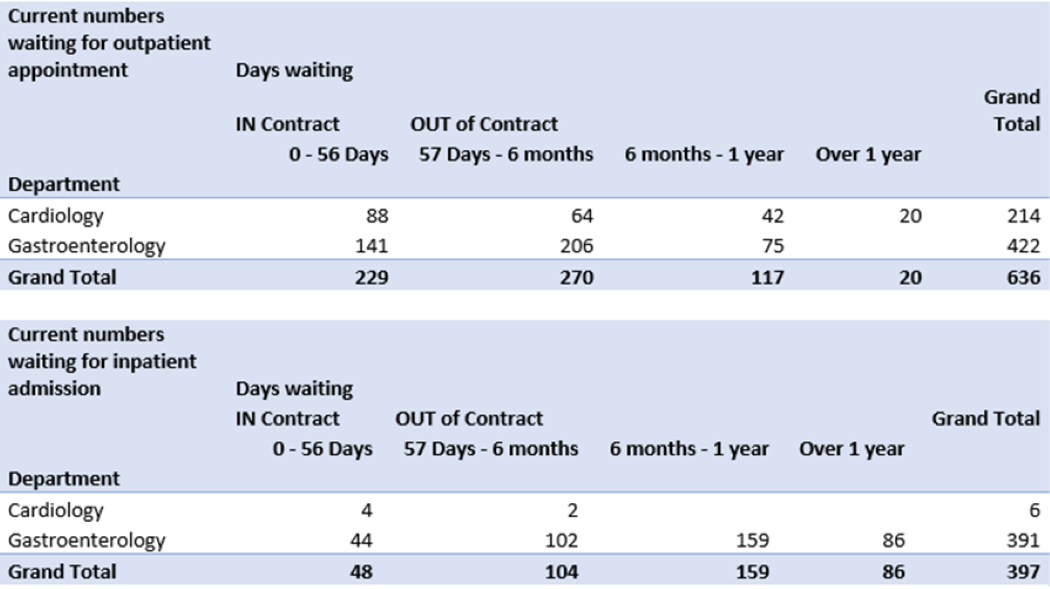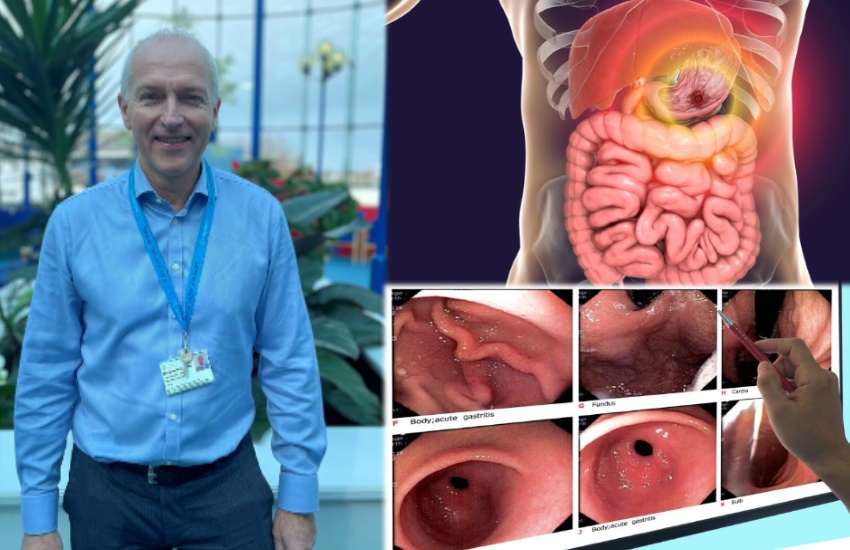


Around four out of every ten gastroenterology patients are waiting longer than six months for a procedure or appointment they need with a specialist.
Only one in five patients is being seen within eight weeks – the waiting time expected under the States' secondary health insurance scheme.
Hundreds of patients are affected: 75 patients have been waiting longer than six months for an appointment, 159 have been waiting longer than six months for a procedure or operation, and more than 300 others have been waiting between eight weeks and six months.
Waiting times are almost as long for cardiology appointments – where six out of ten patients are waiting longer than the eight weeks they should be and three out of ten are waiting longer than six months – though in-patient cardiology procedures are less affected.
The Committee for Health & Social Care said waiting times were down to increased demand, lack of specialist staff and disruption caused by the covid-19 pandemic.
"Waiting times continue to be challenging and the impact of the pandemic will take some time to clear, but we appreciate that this is no consolation to patients in Guernsey who are having to wait longer for an appointment or an operation than they expected," said the Committee.

Pictured: The Committee for Health & Social Care (inset) has a contract with the Medical Specialist Group (right) to provide secondary healthcare using facilities at the States' Princess Elizabeth Hospital (left).
The Committee said that "all more urgent referrals have been dealt with" by the Medical Specialist Group, which provides secondary care under a contract signed with the States in 2018.
But gastroenterology patients waiting for an in-patient procedure or operation currently have only a one in ten chance of being seen within eight weeks. More than half are waiting longer than six months.
Gastroenterology patients waiting for an out-patient appointment have little more than a three in ten chance of being seen within eight weeks. Nearly one in five is waiting longer than six months.

Pictured: Waiting times as at 31 October.
Gastroenterology includes gastroscopy, which involves a camera being swallowed to inspect the upper part of the gastrointestinal tract, and colonoscopy, in which a camera is inserted into the anus to examine the colon.
They are considered the key investigative and diagnostic procedures for gastrointestinal cancers, which are among the most frequent cancers with relatively high mortality rates unless detected in the earliest stages.
It is understood that repeated failure to meet contracted waiting times and leaving patients months without having appointments or procedures they need is causing serious concern in the island's medical community.

Pictured: Procedures such as colonoscopy are key to early and life-saving detection of cancers.
"Demand has significantly increased in recent years for gastroenterology because endoscopy allows doctors to inspect internal organs and the digestive tract without patients having to go through major surgery," said the Committee.
"And because it is an aerosol-generating procedure – with higher risk of spreading the virus – endoscopy was restricted to urgent cases only during the height of the covid-19 pandemic.
"On top of this, there is an acute shortage of consultant gastroenterologists in the UK, which is making it extremely difficult for the Medical Specialist Group to attract permanent or locum replacements for the two consultant gastroenterologists who left earlier this year [Dr Hamish Duncan and Dr Manoj Kuttapan]. A new locum gastroenterologist has started [recently] and a second will start later this month.
"It should also be noted that Guernsey was not able to commission services from the UK to address any backlog in 2020 and 2021 due to the covid-19 pandemic."

Pictured: Long-serving gastroenterologist Dr Hamish Duncan retired earlier this year.
The Committee said that its hospital modernisation programme, which was approved by the States in 2019, should shorten waiting times for key procedures.
"[It] will provide Guernsey with the capacity to meet current and predicted future demand. The first phase of this programme is already well underway. When that capacity is available, improvement to waiting times are expected," said the Committee.
Long-serving MSG consultant retires
Bowel cancer campaign on buses
New equipment for bowel cancer patients will reduce waiting times
Comments
Comments on this story express the views of the commentator only, not Bailiwick Publishing. We are unable to guarantee the accuracy of any of those comments.